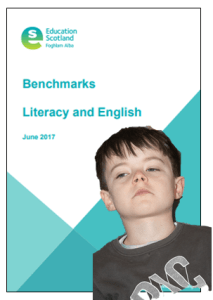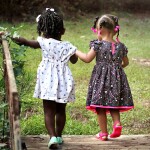If you’re a government minister, confronted with a parliamentary vote against a much cherished policy, what do you do?
 Traditionally, you kick it into the long grass by ordering an official report. So, last September, when the Scottish Parliament voted to scrap the P1 SNSA (i.e. Scottish National Standardised Assessments in literacy and numeracy for five-year-old children), Education Secretary John Swinney administered a skilful kick, ordering an ‘independent review’.
Traditionally, you kick it into the long grass by ordering an official report. So, last September, when the Scottish Parliament voted to scrap the P1 SNSA (i.e. Scottish National Standardised Assessments in literacy and numeracy for five-year-old children), Education Secretary John Swinney administered a skilful kick, ordering an ‘independent review’.
At some point in May, we should hear from this review, which is chaired by Professor David Reedy, a respected authority on primary education from England. Upstart sent him our written evidence against P1 testing in early April.
But SNSA is a political hot potato, so the Reedy Review is just one of three official reviews relating to it. They’ve been dominating Upstart’s existence for the last few months: keeping up with all the documentation is a time-consuming and energy-sapping experience, not to mention presenting oral and written evidence to both Professor Reedy and the Parliamentary Education and Skills Committee. (The third review, as you’ll see below, wasn’t interested in hearing from us.)
Since January, the Education and Skills Committee has been conducting a review of SNSA as a whole (i.e. in P1, P4, P7 and S2) and published a 93-page Report on 23-4-19. It was pretty damning about the policy: inadequate consultation; rushed introduction; confusion about its purpose; problems relating to standardisation; high costs; a forthcoming five year data-gap for literacy and numeracy attainment, etc., etc. But the evidence was inevitably mixed so we suspect it will just lead to … more reviews.
Hello, dear reader – are you still there?
Thank you for staying with me – I realise that this stuff is deeply boring. But that’s the point of the long grass. Unless you’re totally dedicated to the task of grovelling around in it, you soon lose interest. So I’ll do my best to be brief….
The Education and Skills Committee report will form part of the evidence for the Reedy Review. Sadly, however, Upstart doesn’t expect Professor Reedy to uphold the will of the Scottish Parliament and recommend scrapping the P1 tests. While he is clearly a very decent chap who knows a great deal about primary education, I learned while giving oral evidence to his review that the P1 ‘benchmarks’ for literacy are ‘not in the remit’.
 I’m not sure who composed the remit but that’s a startling omission. The P1 SNSA is based on P1 benchmarks. Upstart agrees with many P1 teachers we’ve met that these benchmarks seriously distort the Experiences and Outcomes expected in Curriculum for Excellence’s Early Level (for three- to six-year-olds).
I’m not sure who composed the remit but that’s a startling omission. The P1 SNSA is based on P1 benchmarks. Upstart agrees with many P1 teachers we’ve met that these benchmarks seriously distort the Experiences and Outcomes expected in Curriculum for Excellence’s Early Level (for three- to six-year-olds).
What’s more, from a recently released Freedom of Information request, we learned that Professor Alison Skerrett, one of the government’s International Council of Education Advisers, argued last September that the SNSA should actually be rechristened ‘Benchmarked Assessments’.
So if Professor Reedy’s remit doesn’t include something so obviously central to case against the P1 SNSA, we can’t really expect much from the poor man.
Please stay awake – only one more review to go!
 Another reason for our gloomy outlook is the third official review. This too is a review of the P1 SNSA, but this time by a government-appointed ‘P1 Practitioner Forum’. Its remit was to consider how the content and presentation of the P1 tests can be improved and it reported on 18-4-19, recommending more detailed guidance about the tests for teachers and further information for parents.
Another reason for our gloomy outlook is the third official review. This too is a review of the P1 SNSA, but this time by a government-appointed ‘P1 Practitioner Forum’. Its remit was to consider how the content and presentation of the P1 tests can be improved and it reported on 18-4-19, recommending more detailed guidance about the tests for teachers and further information for parents.
Are you thinking what we thought? That is: ‘Shouldn’t Mr Swinney have waited for the findings of the Reedy Review before commissioning this third review? Surely, if there’s a genuine chance that the P1 SNSA will be scrapped, there’s no point spending public money on ‘improving’ them until we know, one way or the other?’
Journalist James McEnaney had another question ‘Who chaired the P1 Practitioner Forum?’ which was answered by a Freedom of Information request. It seems that David Leng, the chap in charge of developing the SNSA, asked around for independent chair with ‘credibility and understanding of the P1/Early Learning sector’.
A colleague advised, ‘As you know, a lot of the prominent people in early learning are not totally in favour of testing so you probably want someone who is more neutral.’
So, even though the P1 test is aimed at Early Level children, experts in Early Level education were ruled out. The ‘neutral’ person would have to come from another professional background.
In the end, the chair went to Professor Sue Ellis, an expert in primary literacy (not early years) who has been advising the government on the content of the SNSA since 2015. She has regularly spoken in favour of the P1 tests and last summer gave a spirited defence of them on BBC Scotland.
Not exactly ‘neutral’ then…
Happy play in grassy places
You may have noticed that spending time grubbing about in the long grass is making me a tad cynical … So I’ll end on some cheerier grassy thoughts. As long as Upstart and others opposed to the P1 SNSA keep on churning out compelling evidence and arguments, the government will eventually run out of long grass to hide in. And we will carry on working for ‘play not tests’ for Scotland’s five-year-olds by campaigning for a ring-fenced, relationship-centred, play-based kindergarten stage (three to seven years) – the sort of natural learning environment RLS was thinking of when he wrote:
Happy hearts and happy faces,
Happy play in grassy places –
That was how, in ancient ages,
Children grew to kings and sages.
Sue Palmer (Chair, Upstart Scotland)



